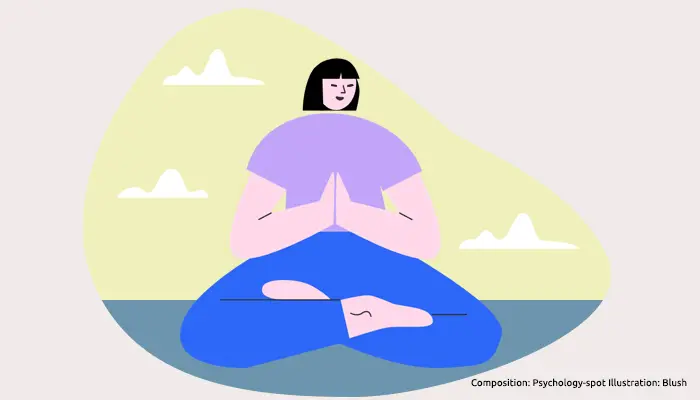
Buddha and his disciples started a long journey during which they would cross different cities. On a very hot day, they spotted a lake and stopped by, besieged by thirst. Buddha asked his younger disciple, famous for his impatient nature:
– I’m thirsty. Can you bring me some water from that lake?
The disciple went to the lake but when he arrived, he saw that just at that moment, a bullock cart was going through it. As a result, the water became very muddy. The disciple thought: “I can’t give my teacher this muddy water to drink.”
So he came back and told Buddha:
– The water in the lake is very muddy. I don’t think we can drink it.
After half an hour, Buddha asked the same disciple to return to the lake and bring him some water to drink. The disciple returned to the lake.
However, to his dismay, he discovered that the water was still dirty. He returned and told Buddha, this time with a conclusive tone:
– The water of that lake can’t be drunk, we’d better walk to the village so the villagers can give us some water.
Buddha did not answer him, but he did not move either. After a while, he asked the disciple himself to return to the lake and bring him water.
The disciple went to the lake because he did not want to challenge his master, but he was furious that he sent him back and forth to the lake, when he already knew that the muddy water could not be drunk.
However, when he arrived this time, the water was crystal clear. So he picked up some of it and took it to Buddha.
Buddha looked at the water, and then said to his disciple:
– What did you do to clean the water?
The disciple did not understand the question, it was evident that he didn’t do anything. Then Buddha explained to him:
– Wait and let her be. So the mud settles on its own, and you have clean water. Your mind is like that too! When it is disturbed, you just have to let it be. Give it some time. Do not be impatient. It will find the balance by itself. You do not have to make any effort to calm it down. Everything will happen if you do not cling.
Monkey mind: The impatient mind besieged by worries
The Buddhists refer to our mind with the word xinyuan, a term that can be translated literally as “monkey mind” and that means “unresolved, restless, capricious, inconstant, confused, indecisive or uncontrollable”.
For Buddhism, our mind is like a monkey jumping from branch to branch, always restless and confused. We continually jump from thought to thought, from worry to worry, until we are in a state of turmoil, confusion and exhaustion.
When we add emotions to that mind imbued in a frantic activity, we have all the ingredients to form a “perfect storm” that will lead us to make bad decisions. In those cases, the best thing to do is waiting.
When you do not know what to do, when you are too confused to make a decision, the ideal is that you do not do anything, that you wait and give time to time. If you get carried away by impatience, frustration, overwhelm or worries, you are likely to end up taking a bad decision that you will regret later.
That calming the mind of Buddhism is the equivalent, in the field of Psychology, to take an emotional distance from the problem that stings your mind. The objective is to find the mental balance essential to analyze the multiple edges of the problem. In practice, instead of rushing to act, preoccupied by inaction with the thought that “we need to do something urgently”, it is about doing just the opposite: calming the waters of our mind and waiting for as long as necessary.
Neither thoughts are so logical nor emotions so irrational
This Buddhist parable not only encourages us to be patient with ourselves until we find serenity, but also contains another great lesson that we forget too often, immersed as we have been for centuries in a Cartesian way of thinking that places reason on an altar and denigrates emotions at the lowest level.
However, to make good decisions we must be aware that neither emotions are so irrational, nor thoughts are so logical. Our thoughts can become extremely irrational and catastrophic or even lead to excessive optimism. We must not forget that many of the mental storms are formed precisely by those thoughts out of control. In those cases, paying attention to them can be very harmful.
Emotions can also lead us to a state of mental confusion, but they are signals of our tastes and more intense rejections, so in some cases it is convenient to include them in the equation, and not just as a minor variable. In fact, it is no coincidence that in recent times we are rediscovering the Intuitive Intelligence, and research reveals that in some situations, it is better to decide to let yourself be carried away by “insights“.
The “miracle” is that when we manage to calm the mind, when we reach that state of inner peace, thoughts and emotions merge, allowing us to see the problem more clearly and globally.
Of course, that does not guarantee that your decision will be the best, there are no magic formulas, but it will undoubtedly be the best for you at that moment. And that is the most important thing.



